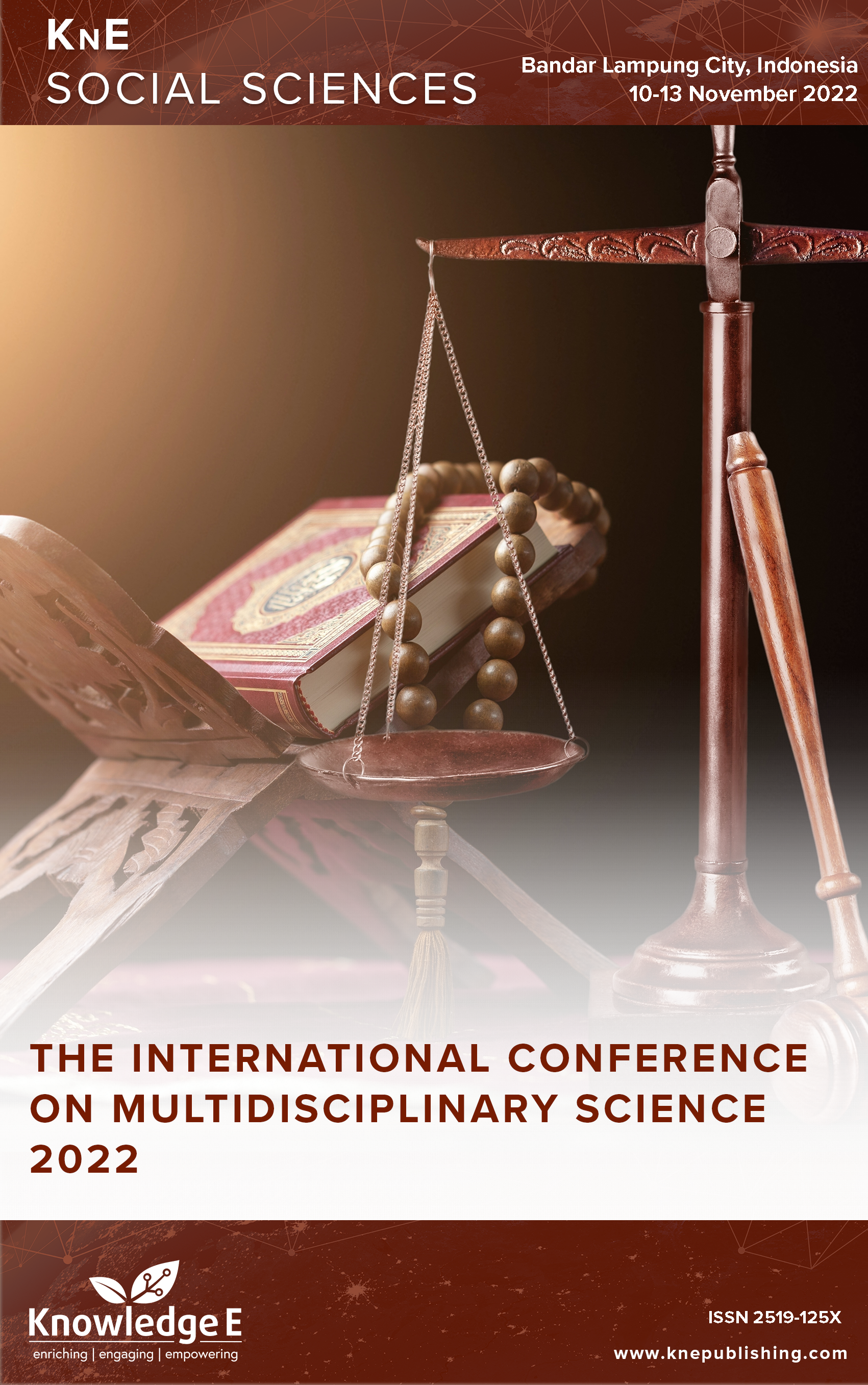Islamic Boarding Schools on Facing the Issue of Religious Intolerance
DOI:
https://doi.org/10.18502/kss.v8i16.14063Abstract
Indonesia is a multicultural country with various kinds of diversity, including ethnicity, race, religion, and language. However, sometimes in this diversity disturbing problems often arise that can eliminate the meaning of harmony itself. Thus, various sustainable efforts can be made so that this problem does not grow. One of them is by strengthening the value of religious tolerance. In this case, Santri and Pesantren play a special role in the realization of peace in Indonesia and the world. The purpose of this research is to identify to what extent Islamic boarding schools are expected to contribute to solving problems that exist in society. One example of this contribution is in dealing with religious intolerance based on Islam, Rahmatan Lil Alamin. Rahmatan lil Alamin is a concept in Islam that teaches and spreads the culture and philosophy of love, peace and compassion, tenderness and respect for mankind and provides guidance to people. The method used in this research is qualiative in nature. It is descriptive through the use of literature review and library research to obtain the research data. The theoretical approach used is the theory of symbolic interactionism by George Herbert Mead. Using this theory, the results of the analysis can be concluded, stating that through interaction, a socialization process can be formed which sees the development of the mindset and self. If someone is able to interact well, then the intent of each individual or group will be well understood too, thus minimizing the occurrence of intolerance where a person cannot accept an opinion, teaching or belief of others.
Keywords: Islamic Boarding School, Intolerance, Religion, Islam Rahmatan Lil Alamin.
References
[2] Arif KM. Moderation of Islam, Comprehensive Study of Islamic Wasthiyah Thought. Jakarta: Ikadi Press; 2020.
[3] Arif KM. Islam Rahmatan lil Alamin from Social and Cultural Perspective; Islam Rahmatan lil Alamin in Socio-Cultural Perspective. Jakarta: Journal of Minutes. 2021;12(2).
[4] Research and Development and Training Agency of the Ministry of Religion of the Republic of Indonesia. (Accessed Online on January 4, 2022).
[5] Badi’ah S, Salim L, Syahputra M, Chandra. Pesantren and Change. Social in the Digital Age, Lampung. J Islamic Stud. 2021;21(2).
[6] Burn A. Concepts of Tolerance and Religious Freedom. Riau: Journal of Tolerance at UIN Sultan Syarif Kasim. 2015;7(2).
[7] Effendi M, Ridwan. Mitigation of Intolerance and Religious Radicalism in Islamic Boarding Schools Through an Inclusive Learning Approach. Jakarta: Journal of Pedagogies. 2020;1(1).
[8] Muslihah E. Pesantren and Peace Education Development Case Study at An- Nidzomiyah Islamic Boarding School Labuan Pandeglang Banten. Banten. J Anal. 2014;14(2).
[9] Mustari M. The Role of Islamic Boarding Schools in the Development of Village Community Education. Yogyakarta: MultiPress; 2011.
[10] Prasetyo W. Islamic Boarding School Students and Independence. (Accessed Online on January 3, 2022).
[11] Salim L. Gender Social Construction in Islamic Boarding Schools Study the Gap Between boy with girl, Lampung: Journal of the Sociology of Religion. 2020;1(2).
[12] Soeprapto R. Symbolic Interaction of Modern Sociological Perspectives. Yogyakarta: Averrpress and Student Library; 2002.
[13] Solichin MM. Independence of Islamic Boarding Schools in the Reformation Era. Madura, Journal Nuansa. 2012;9(1).
[14] Wahid. Future Islamic Boarding Schools. Bandung: Hidayah Library. 1999.
[15] Wirosardjono S. Religion and the Plurality of the Nation. Jakarta: Association Pesantren and Community Development; 1991.
[16] Yahya N. Islamic Boarding School: Pioneers of Tolerance and Diversity, (Accessed [via the website:https://muballah.id.)]. Online (Bergh). 2022 Jan;3.

